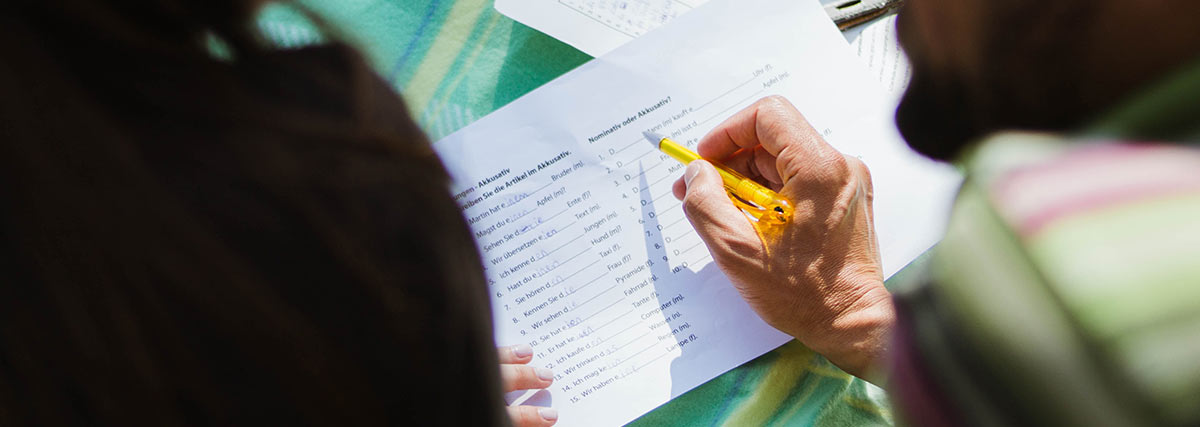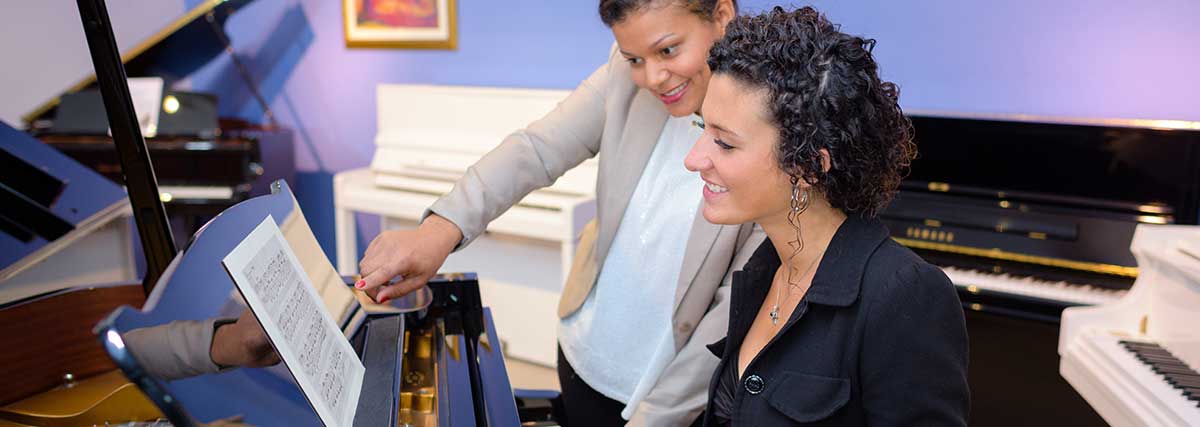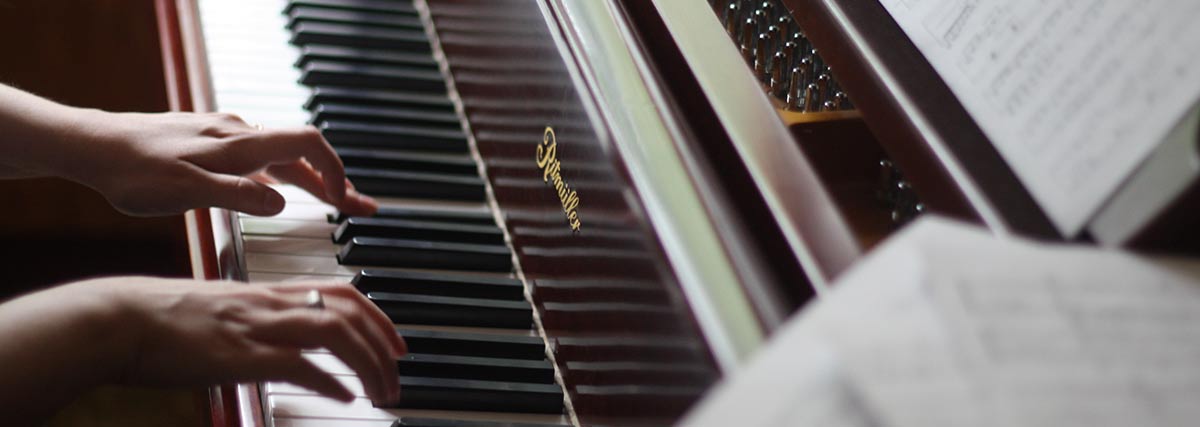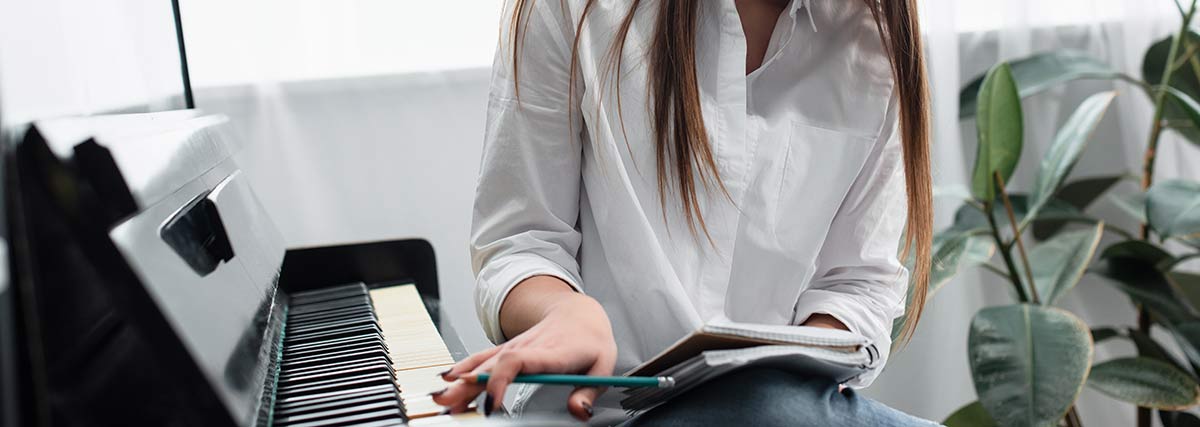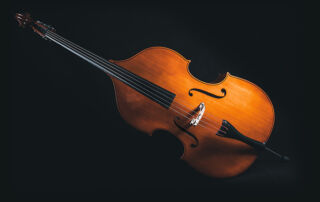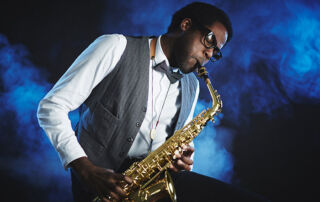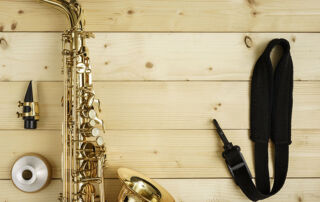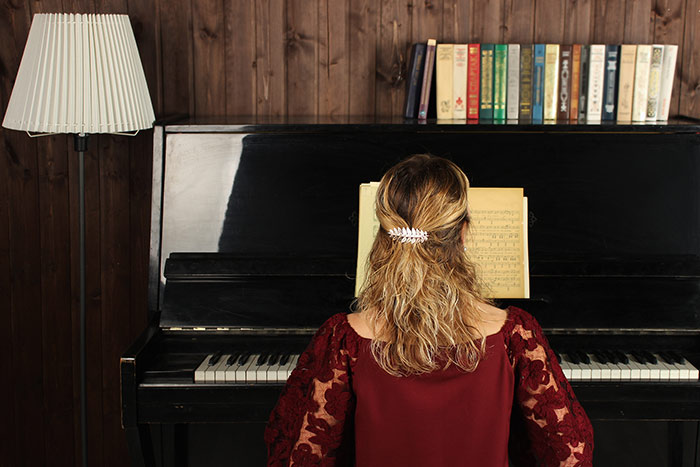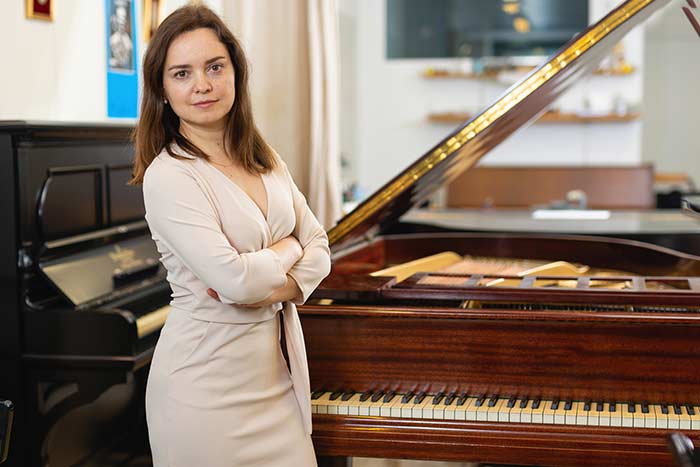At the Paris Music Institute, we are often asked if it is necessary to have basic music theory in order to start piano lessons for beginners.
I find this question interesting because it shows how piano and music in general is perceived by the public. When it comes to starting piano lessons, people are afraid that not having a foundation will hurt them.
Isn't that an oxymoron? Why should you know the basics before you've even had your first lesson?
Common points between starting piano lessons and learning a new language
I find it strange to ask if you need to know the basics before you start. It's the equivalent of asking if you need to know the grammar rules before starting Italian lessons! I'm sure you would answer "of course not! Learning the grammar, building my vocabulary and improving my pronunciation will happen gradually and simultaneously".
However, when it comes to piano lessons, there is a disconnect between two elements: theory and practice. Learning a foreign language and taking piano lessons are very similar, since in both cases you will improve different things in parallel. You improve both your theoretical knowledge and your aural and technical skills, as well as your performance and sound production skills.
Studying each of these aspects, one after the other, would be the equivalent of learning the grammatical rules of a language before even opening a dictionary. It would be like memorising thousands of words before knowing how to pronounce them, and then learning how to construct sentences. It doesn't really make sense, does it?
The typical adult beginner's piano lesson
It is now clear that you will develop your music theory skills as you improve your piano playing. If you join a beginner's piano course, your teacher will take care of you in a comprehensive way from the first lesson. At the same time, he or she will show you how to understand sheet music and practice your keyboard skills.
In your first lesson, you will learn a few musical notes, some basic rhythms and a simple melody to play with one hand. As you progress, the score will become more and more complex to read. Your technical and musical level will develop gradually at the same time.
Having no musical knowledge could be an advantage!
I think you understand by now that there is no need to worry and that it is not at all necessary to have any musical knowledge before starting your piano lessons.
I wonder, in fact, whether starting absolutely from scratch might not be an advantage.
During my career, I met several adults who were returning to the piano after a twenty or thirty year break. Most of them had forgotten their theoretical knowledge and were trying very hard to remember it. For example, they could remember notes in the treble clef (the notes read on the first line of a musical staff and usually played by the right hand), but had completely forgotten the bass clef (notes on the second line of a musical staff and usually played by the left hand). These students tended to try to match their level of knowledge for both clefs quickly and found some tricks to speed up the process.
Rather than taking the time to learn the F key as they had done with the G key in their youth, they tried to remember by heart the part played by the left hand to hide the fact that they were unable to read the notes correctly. Doing so only widens the gap between what they really know and what they have forgotten.
The same problem occurs with rhythms and note values. Some people only remember part of it. They find it difficult to accept that they have lost knowledge and hide their ignorance.
Other adults have no traditional training. They have learned to play the piano by ear and are unable to read a musical score. They have no knowledge of music theory. They have no knowledge of music theory, which creates a lot of frustration. They can play relatively complex pieces from memory, but are unable to read a very simple piano score.I have met a few people in this situation, but none of them had the courage to go back to the basics when necessary. Their piano playing is similar to a jumper eaten by moth or a colander bowl!
I understand perfectly well that it can be frustrating to be able to play Liszt or Rachmaninoff without being able to sight-read In the Moonlight. However, ignoring the basics is a big mistake that should be avoided at all costs if you want to become a prolific or accomplished pianist?
It's fantastic that you give so much importance to music theory!
Even though we have seen that it is not necessary to have any or any knowledge of music theory to start your piano lessons, I am very happy to know that you have thought about it. It shows that you value this essential aspect of the piano and proves that you understand the world of music which is both a science and an art. These two aspects go hand in hand and are present in all good performances. If you've never played the piano before, but feel ready to start, go for it now. You don't need to have any special knowledge before taking your first piano lesson.
Feel at ease, whatever your level! We will be happy to support you on your musical journey and help you become the pianist you have always wanted to be.

